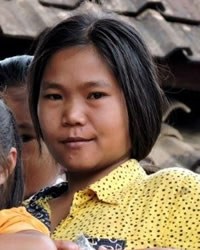Semendo in Indonesia

Photo Source:
Copyrighted © 2026
International Mission Board-SBC - Jacob Talley All rights reserved. Used with permission |
Send Joshua Project a map of this people group.
|
| People Name: | Semendo |
| Country: | Indonesia |
| 10/40 Window: | Yes |
| Population: | 269,000 |
| World Population: | 269,000 |
| Primary Language: | Malay, Central |
| Primary Religion: | Islam |
| Christian Adherents: | 0.02 % |
| Evangelicals: | 0.00 % |
| Scripture: | New Testament |
| Ministry Resources: | Yes |
| Jesus Film: | Yes |
| Audio Recordings: | Yes |
| People Cluster: | Pasemah of Sumatra |
| Affinity Bloc: | Malay Peoples |
| Progress Level: |
|
Introduction / History
The Semendos speak Central Malay.
What Are Their Lives Like?
The majority of the Semendo have been farmers for generations. Their fertile farmland lies approximately 900 meters above sea level. There are two main crops produced, rice and robusta coffee. Semendo is one of the primary rice-producing areas in South Sumatra. There are approximately 5,000 hectares of productive rice fields planted and harvested each year.
Semendo culture is more likely to give priority and authority to women than men because the Semendo kinship system is matrilineal, based on the mother's line.
What Are Their Beliefs?
The Semendo have been Muslims for generations. The customs and culture of the area are greatly influenced by Islam. From rebana (tambourine) music to local songs to local forms of dance, all are strongly influenced by Islamic Malay culture.
What Are Their Needs?
Though they tolerate people of other religious backgrounds, few, if any, would consider the claims of Christ.
Prayer Points
Pray for the Lord to thrust out loving workers to the Semendo.
Pray for the Lord to use dreams and visions to get the attention of the Semendo.
Pray for disciples to make more disciples in Semendo villages.